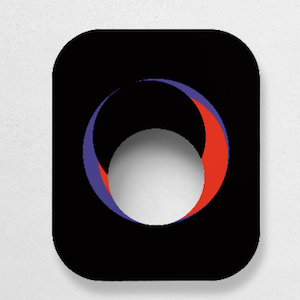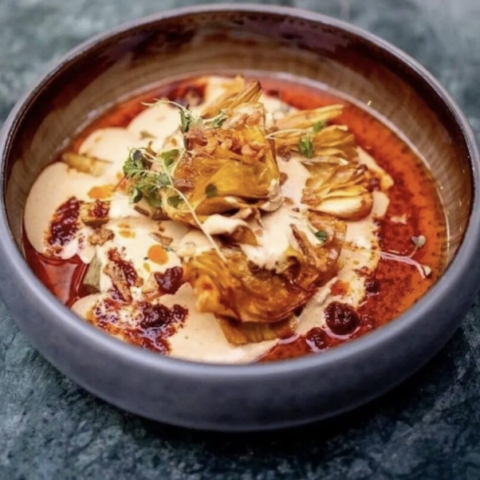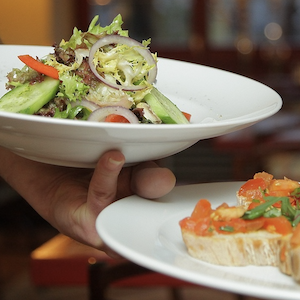Coffee Is Passion; Life Goes Hand in Hand with It
By Shreya Samanta
Is it your morning wake-up call? that hot steamy brew that kickstarts your day. Can you imagine a day with no black gold in your life? After all, isn’t the day made up of coffee moments? Let’s face it this hot elixir is part of everyday culture, for example, if someone asks you on a date don’t, they say,” Would you like to meet for a coffee?” Coffee Is Passion; Life Goes Hand in Hand with It
It’s fascinating to think that a simple cup of coffee has been enjoyed for centuries, whether called java, liquid gold, or something else. The earliest credible evidence of coffee drinking comes from 15th-century Yemen. There, Sufi shrines roasted and brewed coffee beans in a way similar to today’s preparation.



In Italy, mornings begin with the creamy froth of a cappuccino. Whether at home or in a bar, Italians never drink cappuccino after breakfast. Meanwhile, mornings in France follow a different rhythm. Picture a Parisian darting into their favourite café for a quick espresso. This fast ritual involves standing at the counter, taking a sip, exchanging a swift “Bonjour!” with the barista, and rushing off, fully energised for the day. It’s simple, bold, and effective.
Illy Art Collection 2024
In Colombia, people start their day with a “tinto”, a small, strong cup of black coffee. Similarly, in Scandinavia, black coffee is a constant companion, sipped throughout the day to combat long, dark winters. Meanwhile, in Turkey, coffee has been a cultural staple for centuries. It’s savoured slowly and often followed by reading fortunes in the leftover grounds.
In many cultures, the afternoon coffee break is a beloved ritual. Often paired with a sweet treat like Austria’s “Kaffee und Kuchen,” (coffee and cake) it offers a chance to recharge during a busy day, or even a time spent chatting with friends.
For others, coffee represents solitude and reflection. That quiet cup can be the perfect companion to a book, or simply a moment of peace from life’s pressures. In family gatherings, coffee often shifts conversations from food to shared experiences.
2024 illy Art Collection
Indeed, coffee weaves itself into daily routines, social customs, and personal moments. From morning rituals to late-night chats, it connects different aspects of life around the world. But what about the coffee we drink and the cups we drink from?
Francesco Illy, who founded illycaffè in 1933, revolutionised espresso preparation. His invention of the Illetta coffee maker changed how espresso was made. By 1957, illycaffè also started selling small cans of coffee for home use.
This Italian family-owned business, renowned for crafting a 100% Arabica blend, sources the top 1% of the world’s finest Arabica beans. Today, over 8 million cups of illy coffee are served daily in more than 140 countries.
They have perfected coffee-making and earned recognition as one of the World’s Most Ethical Companies. Moreover, they became the first Italian coffee brand to receive B Corp certification, underscoring their commitment to sustainability and ethics.
In 1997, they launched the illy Art Collection, which transformed everyday coffee cups into canvases for contemporary artists. For over 30 years, illy has consistently partnered with more than 125 artists, turning these cups into collectable art pieces. As a result, the collection has become a symbol of the brand’s dedication to coffee and art.
Every year during Frieze, illycaffè continually takes its passion for coffee and art to the next level. They present, at this renowned art fair their new collections. These limited-edition cups are not just vessels for your morning espresso, they are mini masterpieces in their own right. Collaborating with contemporary artists from around the globe illy has created a tradition of transforming everyday coffee cups into collectable works of art.
2024 illy Art Collection, from the Monica Bonvicini, Binta Daiw, Simone Fattal and Shirin Neshat, the Genesi Collection.
After all, behind every cup of coffee we enjoy, alone or with others, there is the taste sensation, the smell arising from the cup and of course there is a moment of contemplation, and this is exactly what the illy Art Collection is all about.
This year illy partnered with the Associazione Genesi, founded in 2020 at the behest of Letizia Moratti. It is committed to human rights by adding value to different cultures and the environment. The Associazione’s mission is to contribute, through contemporary art, to creating a more responsible and socially active citizenry.
Collezione Genesi, selects artworks by artists from around the world and from different generations, who reflect on the urgent, complex, and at times dramatic cultural, environmental, social, and political issues of the day. They collaborated with illy on this year’s collection.
The works feature four internationally renowned women artists: Monica Bonvicini, Binta Diaw, Simone Fattal, and Shirin Neshat. The designs range from burnt oranges to bold black-and-white graphics. The four artists within the 2024 illy collection have works that speak to us of social impact.
Shirin Neshat is an Iranian photographer and visual artist who lives in New York City. She is known primarily for her work in film, video and photography.
Her artwork centres on the contrasts between Islam and the West, femininity and masculinity, public life and private life, antiquity and modernity, and bridging the spaces between these subjects.
Since the Islamic Revolution, she has said that she has “gravitated toward making art that is concerned with tyranny, dictatorship, oppression and political injustice.
Monica Bonvicini is a German-Italian artist who works with installation, sculpture, video, photography and drawing mediums to explore the relationships between architecture and space, power, gender and sexuality.
She is considered part of a generation of artists that expanded on the critical practices of the 1960s and 1970s to conceive of space and architecture as a material that could engage with discourses of power and politics, defining art as an active form of ‘critique’
Simone Fattal is a Lebanese-American artist. Born in Damascus and was educated in Beirut and Paris, studying philosophy at the Sorbonne. She returned to Beirut in 1969, where she began a career as a painter.
And finally, Binta Diaw a Senegalese-Italian visual artist based in Milan, Italy. Her research is aimed at the creation of installations of various dimensions and her works comment on social phenomena like migration and immigration, notions of identity as well as the Black female body experience.
Defying the Western gaze through a subversive sensibility, her practice questions perceptions of Italianness and Africanness seen as an extended symposium informed by her own cultural heritage and upbringing.
Embracing visual art with a strongly intersectional, afro-diasporic and feminist methodology based on a physical personal experience, she is ultimately able to explore the multiple layers of her Blackness, her self as a social body and her position as a Black woman in a Western context.
In 1980, fleeing the Civil War, she settled in California and founded the Post-Apollo Press, a publishing house dedicated to innovative and experimental literary work. In 1988, she returned to artistic practice by doing ceramic sculptures after enrolling at the Art Institute of San Francisco.
Each artist brings not just feminine insight, but images that help us contemplate the pain, sorrow, and conflict as well as the joy and vitality that life has to offer. Each cup offers the opportunity for conversation as well as observation reflection and community.
As well as being part of the frieze show, on 30 September, Apricity, a Green Michelin-starred restaurant in Mayfair, hosted an “Art for Thought” coffee cocktail evening. The event coincides with Frieze London and forms part of illycaffè’s collaboration with The Cultivist.
Nigerian-British curator Aindrea Emelife explored the theme “Women as Vanguard,” offering fresh insights into modern art. With her extensive background, including work as a Curator at the Museum of West African Art, Aindrea brings a wealth of expertise and passion to the event.
The highlight of the evening was Nigerian-British curator and art historian Aindrea Emelife, who dived into the powerful theme of Women as Vanguard.
Aindrea’s expertise in modern and contemporary art, especially with her focus on colonial and decolonial histories, undoubtedly brought a fresh and insightful perspective. It’s good to note that she’s got some serious art credentials, including her work as a Curator at the Museum of West African Art and her successful exhibitions, like BLACK VENUS at Somerset House.

Aindrea Emelife
The evening featured signature coffee cocktails from illycaffè. These include the indulgent Espresso Martini and the refreshing Cold Brew & Lemon Tonic, paired with delicious canapés crafted by Chef Ambassador Chantelle Nicholson; the carefully curated menu perfectly complemented the artistic and cultural experience.
Founded in 2015, The Cultivist connects artists, collectors, and brands worldwide, curating unique experiences that blend art, luxury, and creativity.
illy Table Image
Whether you’re a coffee lover, art enthusiast, or simply in search of an elegant evening, the “Art for Thought” event offers a perfect blend of coffee, cocktails, canapés, and culture.
If you enjoyed reading An Ultimate Scented Set Up why not read Frieze ’24; All You Need To Know And See | Cent Magazine
.Cent magazine London, Be inspired; Get Involved









